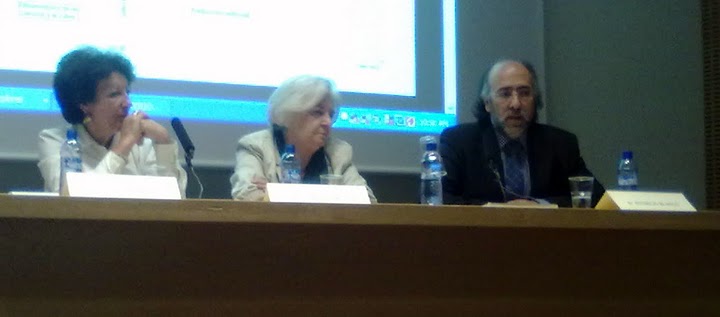In September 2010 ACE Traductores (http://ace-traductores NULL.org/) presented the second white book of literary translation in Spain, a project that has enjoyed the collaboration of other Spanish associations (ASETRAD (http://www NULL.asetrad NULL.org/), APTIC (http://www NULL.aptic NULL.cat/), EIZIE (http://www NULL.eizie NULL.org), AGPTI (http://www NULL.agpti NULL.org), ACEC (http://www NULL.acec-web NULL.org) and UNICO (http://www NULL.uniondecorrectores NULL.org)) as well as the support of the collecting society CEDRO (http://www NULL.cedro NULL.org) et de la General Directorate of the Book, a dependant of the Ministry of Culture. The study, based on a vast questionnaire answered by more than 600 translators who had translated at least one book, was carried out by the sociologist José Miguel Marinas. The result is a detailed analysis of the current situation which shows that, more than ten years after the publication of the first white book in 1997, Spanish literary translators are still working in very precarious conditions that makes the practice of their profession difficult.
 (http://www NULL.ceatl NULL.eu/wp-content/uploads/2010/10/LibroBlanco NULL.jpg)
(http://www NULL.ceatl NULL.eu/wp-content/uploads/2010/10/LibroBlanco NULL.jpg)
The conclusions of the white book underline the weak and strong points of literary translation, its risks and its opportunities. Among its weak points, emphasis must be given to the fragmentation of the sector, the limited level of membership of associations, the existence of a large number of part-time translators as opposed to the very small number of professionals devoting themselves exclusively to translation, uncertainty concerning payments, the lack of information about rights and the failure of complaints. Risks include the frequent violation of the Law of Intellectual Property and the refusal of certain publishers to negotiate, the difficulty in determining the sum of digital rights and the stagnation of tariffs at an extremely low level.
The strong points, on the other hand, include the existence of a legislative context that acknowledges the author status of literary translators, as well as the support of associations and public institutions. Finally, there are also opportunities for the future, thanks to the online presence of associations and specialist journals, cooperation between associations and universities, and the existence of European organisations such as CEATL, whose action extends beyond the borders of each country.
Although it reflects a complicated situation, the white book is an excellent tool to develop confident reflection, put forward an objective basis for future claims and open up slightly clearer paths towards a solution.
Download (http://www NULL.ceatl NULL.eu/wp-content/uploads/2010/10/libroblanco2507red NULL.pdf) the white book (in Spanish).
